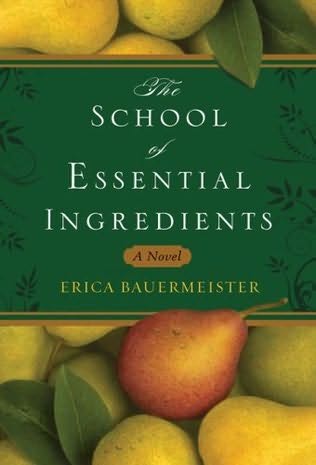 latest one. In her novel The School of Essential Ingredients, Erica Bauermeister tells the tale of each student in Lillian's newest class of students. It is an easy, short read, but one replete with emotion. Bauermeister links the emotion of the classmates to the dishes that they cook. Lillian tells her own story first, followed by chapters based upon each character.
latest one. In her novel The School of Essential Ingredients, Erica Bauermeister tells the tale of each student in Lillian's newest class of students. It is an easy, short read, but one replete with emotion. Bauermeister links the emotion of the classmates to the dishes that they cook. Lillian tells her own story first, followed by chapters based upon each character.It is an uncomplicated series of stories that focuses more on human experience than on the plot. However, Bauermeister does connect the stories loosely by always coming back to the cooking class. My main disappointment was the lack of recipes -- not a single one. I think that Bauermeister was backing her lead character, Lillian's, statement early on that she would never hand out a recipe for her students to follow. However, it was difficult to read a book with so many beautiful descriptions of food and no true instructions on how to prepare them yourself. I found myself searching Food Network's website for similar recipes!
Lillian (through Bauermeister) explains why the class had been particularly special in this passage towards the end of the novel:
It had been a good class, Lillian thought, and spring was already in the trees. A new class would start soon. Lillian always felt a bit of sadness at this point, expected it even. This time, however, Lillian felt more regret than usual. She had always loved being the teacher, the one who knew the spices that would make up a memory, heal a heart. She enjoyed holding the knowledge in her mind like a secret, figuring out which student needed which gift. But this class was different. These students gave to each other, reaching out among themselves with such grace. She saw how connected their lives had become and would remain. Where did a teacher fit in the picture, she wondered, when there was no longer a class? (p. 240)

No comments:
Post a Comment